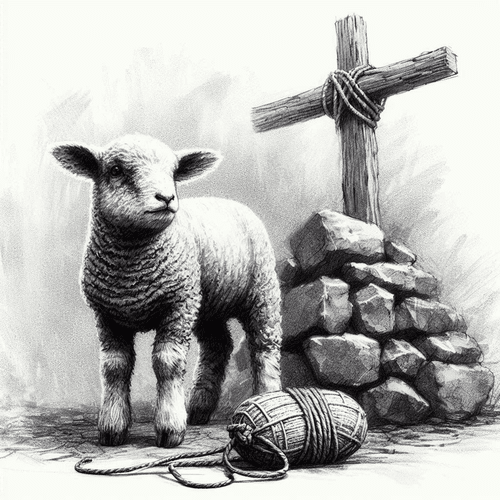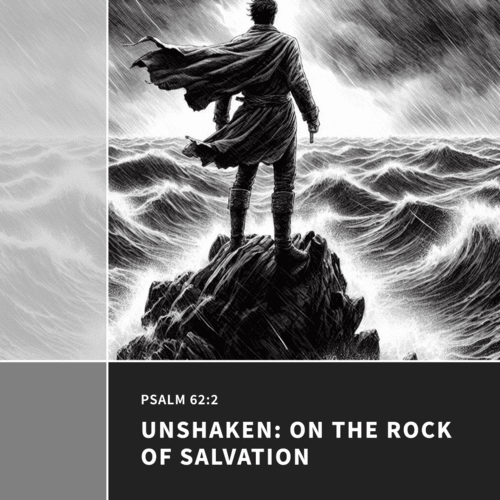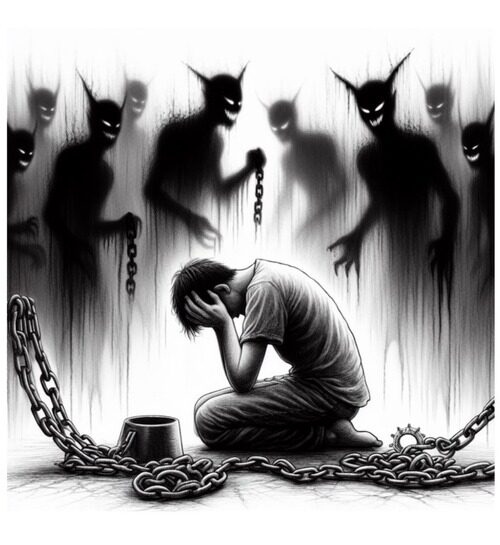Penal Substitutionary Atonement: The Blazing Heart of the Gospel
At the core of Christian theology lies the sublime truth that Jesus Christ died on the cross as a sacrifice to pay for human sin. This isn't some symbolic act of cosmic child abuse, as critics charge. Rather, it's the beautiful brilliance of penal substitutionary atonement—an act of unfathomable love.
What Is Penal Substitutionary Atonement?
Penal means "bearing punishment"—Christ bore our punishment willingly. Substitutionary signifies "in place of another." Atonement conveys the removal or covering over of sin's guilt and penalty. Together, the words mean Christ voluntarily taking upon Himself the righteous wrath and judgment our sins deserved from God, satisfying divine justice against iniquity so we could be forgiven and reconciled to Him.
As our sinless, divine substitute, Jesus suffered the full, infinite consequences we deserve so we could be pardoned and adopted as God's beloved children (Romans 5:8). He who knew no sin became sin for us, bore our condemnation on that cross, so His righteousness could be credited to us (2 Corinthians 5:21). This is the golden thread of the gospel woven through Scripture.
God's "wrath" refers to His settled, righteous opposition and judgment against sin flowing from His infinitely holy nature. For God to merely overlook sin would violate His perfect justice. But in Christ's substitutionary death, both God's justice and mercy are fully upheld. The cross showcased the radiant glory of God's righteousness being satisfied, while simultaneously demonstrating the stupendous wonder of His grace.
Criticisms of Penal Substitution
Objection: "Divine Child Abuse?"
Some decry penal substitution as "cosmic child abuse"—an abusive Father brutally punishing His innocent Son. However, this critique ignores the unified plan of the Triune Godhead, with all Three Persons in willing agreement for this redemptive mission before creation itself (1 Peter 1:20). Far from abuse, it was a glorious rescue operation, with the Son demonstrating His own willing submission to this sacrificial work. The cross was not an injustice but the very centrepiece of cosmic justice.
Objection: "It Didn't Accomplish Anything"
Others argue penal substitution is unnecessary, a "Divine Violence Visited on the Beloved," accomplishing nothing new. This fails to recognize that while God is infinitely merciful, He is simultaneously infinitely just (Isaiah 30:18). Sin's wages had to be paid, God's holiness satisfied. Only at the cross could God's perfect righteousness be upheld while His lavish love was extended.
Objection: "Forgiveness Should Be Free"
Some argue if God is loving, He should freely forgive without requiring a penalty-bearer. However, this view fails to recognize that for God to simply pardon sin would mean being unjust. As the perfectly righteous Judge, a truly just God cannot rightly clear the guilty apart from sin's due penalty being paid (Deuteronomy 32:4).
By sending His Son as the sinless God-man to bear our condemnation, God could then freely forgive repentant sinners while still upholding justice (2 Corinthians 5:21). As our penalty was paid in full at the cross, God could extend His mercy in a way that satisfied both His love and His holiness. God's forgiveness came at the incomprehensible cost of His beloved Son's life. He didn't turn a blind eye, but drank sin's bitter curse Himself in order to nullify evil once and for all.
Objection: "Aren't We Still Paying For Sin?"
The claim is made that if Christ paid it all on the cross, why do believers still face difficulties, sickness, or death?
At the cross, Jesus fully and willingly paid the penalty for sin, redeeming us from eternal condemnation and separation from God (Romans 8:1). However, the process of sanctifying believers and ultimately restoring the entire created order remains an ongoing work until Christ's return.
There is a vast difference between the punishment for sin that Christ bore on our behalf, and the loving parental discipline believers experience in this life as part of the sanctification process (Hebrews 12:5-11). Just as any good father lovingly disciplines his children, our heavenly Father's discipline in the lives of His redeemed children aims not to punish but to produce Christlike character.
The troubles and adversities believers face are not punitive, but purposeful refining tools in the hands of a loving Father committed to conforming us to the image of His Son (Romans 8:29). No child who experiences nurturing discipline views it as punishment, but embraces it as an expression of their father's faithfulness in preparing them for maturity.
So while the debt of sin has been paid, we are not yet fully restored. We face life's difficulties as redeemed children being lovingly trained, not as condemned sinners still paying for guilt. The cross cleared our criminal record; our Father's discipline prepares us for reigning alongside Christ in the universe's coming renewal (Revelation 21:5).
The Glorious Gospel Truth Criticisms of penal substitution fail because they overlook the gravity of sin, the unified wisdom of the Triune God, and the reconciling beauty of divine love bearing sin's full costs.
The cross wasn't an injustice but the very centre of cosmic justice where God Himself drank sin's bitter cup so we could have His sweet salvation. It displayed the full radiance of His righteousness and grace.
If we view the cross merely as sentimental symbolism devoid of substitutionary realities, we rob it of its spiritual dynamism. We have understood nothing of the transcendent holiness of God or of His justice or even of the heinousness of our sin. We have also grasped nothing of the Bible's dire warnings about hell, from which Christ offers to rescue us. But when we embrace the truth the Lamb of God became our sin-bearer, the gospel bursts through in glorious power.
Plumbing the profundity of penal substitutionary atonement will fill us with ever-deeper awe for God's incredible love. So let us abide in this gospel, glorying in its resplendent truth.
Related Reads:
Editor's Pick

Should We Stop Using Male Pronouns for God? Why Do We Say No?
A friend of ours arrived eagerly at his first theology class in seminary. But he quickly discovered something troubling: the [...]

Did Old Testament Law Force Women to Marry their Rapists?
**Editor’s Note: This post is part of our series, ‘Satan’s Lies: Common Deceptions in the Church Today’… Viral misinformation abounds [...]

From Danvers To Nashville: Two Statements, One Biblical Vision
30 years separate the Danvers Statement on Biblical Manhood and Womanhood (1987) and the Nashville Statement on Human Sexuality (2017). [...]

The Nashville Statement: Why Affirm It Despite Media Backlash?
WHY DO REFORMED CHRISTIANS STAND BY THIS STATEMENT ON MARRIAGE AND GENDER? When the Nashville Statement was released in 2017, [...]

Who Is Belial? Solving The 2 Corinthians 6:15 Mystery
Belial: This name from the pages of Scripture chills the soul. Who is this mysterious figure Paul invokes in 2 [...]

Celibacy Or Castration: What Jesus Really Means in Matthew 19:12
One of Scripture's most shocking misinterpretations led theologian Origen to castrate himself in the third century. His tragic mistake? Taking [...]

Philippians 4:13: Did Paul Really Mean We Can Do ALL Things?
"I can do all things through Christ who strengthens me." It's on gym walls, graduation cards, and motivational posters everywhere. [...]

The Ordinary Means of Grace: Why Are They Indispensable?
ORDINARY MEANS FOR EXTRAORDINARY TRANSFORMATION What if God's most powerful work in believers' lives happens through the most ordinary activities? [...]

Is the Bible God’s Word? Or Does It Only Contain God’s Word?
The authority of Scripture stands at the crossroads of modern Christianity. While some argue the Bible merely contains God’s Word [...]

Will We Remember This Life in Heaven? What Isaiah 65:17 Means
"Will I remember my spouse in heaven? My children? Will the joy we shared on earth matter in eternity?" These [...]
SUPPORT US:
Feel the Holy Spirit's gentle nudge to partner with us?
Donate Online:
Account Name: TRUTHS TO DIE FOR FOUNDATION
Account Number: 10243565459
Bank IFSC: IDFB0043391
Bank Name: IDFC FIRST BANK






